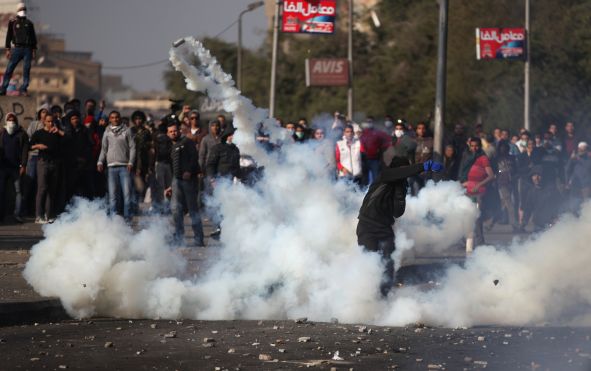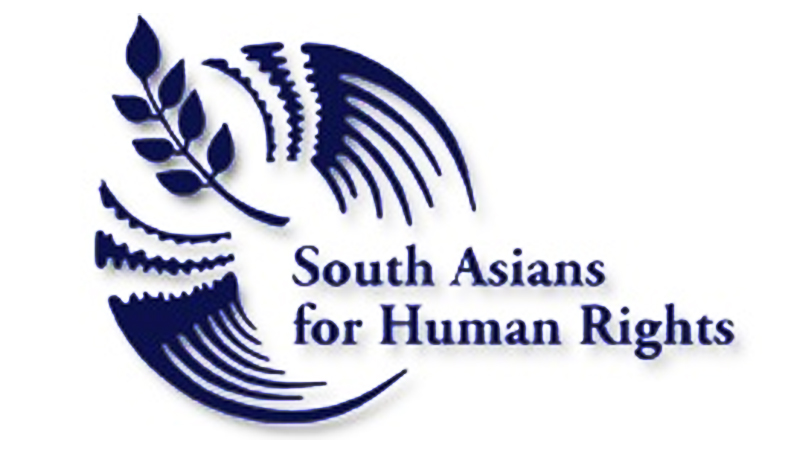Egypt: Post revolution president following in Mubarak’s footsteps?
Paris, Cairo, 31 January 2013 – “We are extremely concerned by the increasing violence during demonstrations and condemn the response of the Egyptian authorities that have once again used excessive force in their handling of demonstrations” stated Souhayr Belhassen, FIDH President on Wednesday, January 31, 2013.
Clashes started on 24 January after protesters took to the streets across the country marking the second anniversary of the Egyptian Revolution. The situation deteriorated on 26 January in Port Said, Suez and Ismailiya with at least 38 deaths in one day and hundreds injured after the Court issued its final verdict in the case of the death of 74 football fans in Port Said stadium on 1 February 2012. Indeed the Court sentenced 21 defendants of Al Masry football fans to death while it postponed the sentence of 9 accused senior police officers to 9 March 2013.
“This sentence is not only a scandal in itself, it also paved the way to inflammation, violence and repression. Death penalty is a blatant violation of the right to life and is considered as a cruel, inhuman and degrading punishment”declared Belhassen.
Families of the defendants gathered at the prison where they were incarcerated and allegedly attempted to storm the prison to free the prisoners. On 27 January , a funeral procession in Port Said carrying the victims of the earlier clashes was attacked by live ammunition. Clashes swiftly erupted between the marchers and security forces leading to an escalation of violence and the death of at least 6 individuals. While FIDH notes the announcement of the Public Prosecutor in opening an investigation regarding the violence, FIDH urges the Egyptian judicial authorities to conduct an independent, impartial and prompt investigation in order to ensure that the perpetrators will be held accountable.
In addition, FIDH has some concerns over the fairness of the trial including the fact that none of the 9 police officers were condemned despite the government’s fact-finding commission report that allegedly reported on the responsibility of the security forces in locking the exits of the stadium which caused the highest number of deaths by suffocation. Moreover, prior to the verdict, the Public Prosecutor requested last week that the investigation be re-opened, new evidence be entered, new arguments be allowed and that 6 defendants be added to the case based on the latest report by the government fact-finding commission. FIDH urges the Egyptian authorities to make the report of the fact-finding commission public so as to ensure the victims’ right to truth, justice and remedy.
Furthermore, FIDH is highly concerned about the decision by President Morsy to declare a 30-day state of emergency in Suez, Port Said and Ismailia, as it constitutes a major setback for the Egyptian revolution which demanded an end to the 30 year rule of the emergency law and has given government forces sweeping powers which have been used to systematically infringe upon Egyptian people’s fundamental freedoms. FIDH is further alarmed by the decision by the Shura Council to approve the draft law submitted by the government allowing the Army to arrest civilians in order “ to maintain the security of the State and its vital institutions”. Even though it has been stated that civilians arrested as a result of this law will be referred to civil prosecution, FIDH fears an abusive use of exceptional powers by military personnel, which may, once again, result in a deterioration of the situation and further violations of freedom of peaceful assembly.
Finally, FIDH notes the latest decision by the Shura Council on the formation of a fact-finding commission into the current violence.“We hope that these commissions that have been formed provide the truth regarding the events and be used to fully prosecute all those responsible for the human rights violations” added Belhassen.
Category: Media Monitoring







